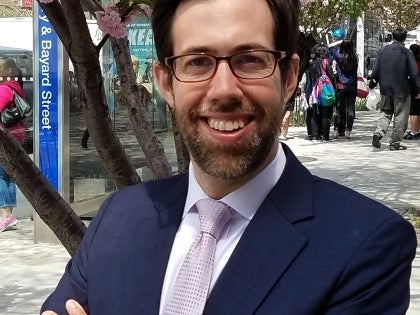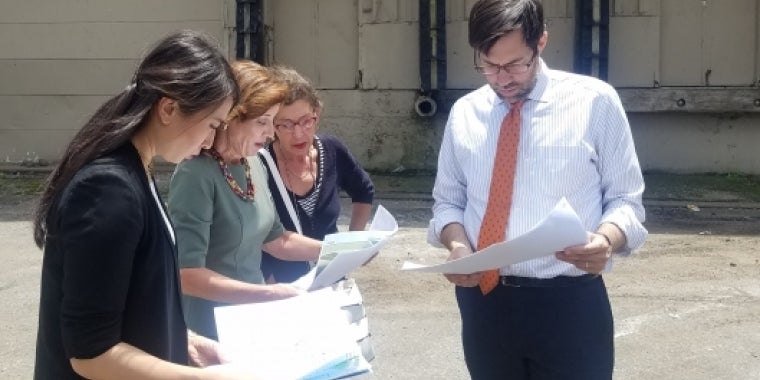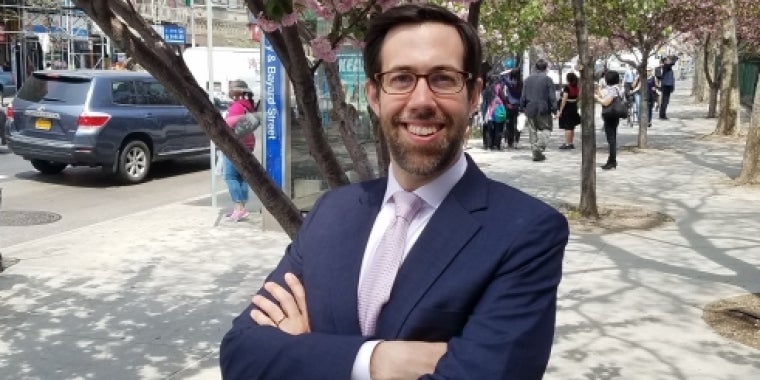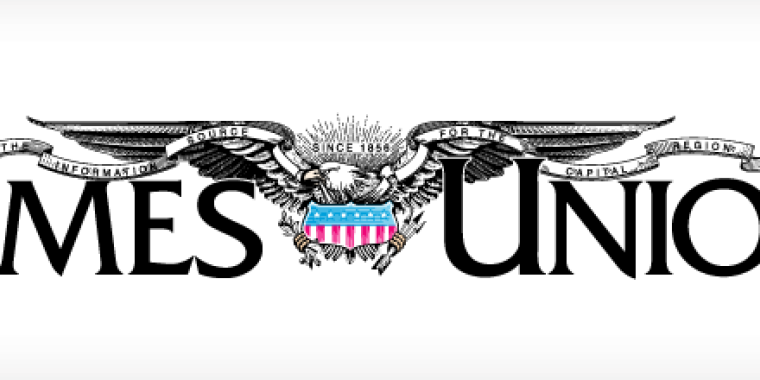
Senator Squadron Releases Report: 'Road-Curb Ponding: A Drain on Chinatown"
September 23, 2011
-
ISSUE:
- Constituents Corner
72% of Respondents in Chinatown Say Ponding Negatively Impacts Their Experience; Two Out of Five Less Likely to Visit Because of Ponding
Squadron Calls for Community-Agency Collaboration to Prioritize Repairs, New 311 Protocol to Ensure Reporting
CHINATOWN – Today, State Senator Daniel Squadron joined community leaders and elected officials to release a new report on road-curb ponding and its detrimental effect on Chinatown’s quality of life and local economy.
Complaints about ponding – water that accumulates along the side of roads and curbs and remains days after a rainfall – have been particularly prevalent in Chinatown. This summer, Senator Squadron's office documented the frequency and location of ponding in the neighborhood and surveyed hundreds of local residents, business owners and visitors on its impact.
Despite New York having one of the driest months of July in years, Senator Squadron’s office identified 93 unique ponds that had not drained within 48 hours of a rainfall within Chinatown. Five particular streets in the heart of Chinatown – one block stretches on Bayard, Mulberry, Mott, Baxter, and Elizabeth Streets -- were home to the highest concentrations, accounting for 47 of the 93 ponds.
Survey responses made clear that ponding is a detriment to Chinatown quality of life and business. Visitors are less likely to return to the area because of the problem. Most notably:
- 72 percent of survey respondents in Chinatown said that ponding negatively impacts their eating or shopping experience.
- Two out of five respondents said that they are less likely to visit the neighborhood because of ponding.
- 62 percent of Chinatown respondents rated the quality of the streets as “below average” or “poor.”
- 76 percent of respondents who have observed ponding said that they have not reported the problem; 58 percent did not know who to contact or that reporting the problem was even an option.
With these findings in mind, Senator Squadron called on the City Department on Transportation to create a specific 311 category for ponding, ensuring a more effective system to record and track repair requests (such as what is currently done with potholes). Senator Squadron also called for DOT collaboration with community organizations and elected officials to raise awareness of the enhanced reporting system, evaluate ponding’s prevalence, and ensure the problem receives the attention and funding it needs.
“Ponding too often goes unreported -- but its drain on Chinatown’s quality of life and economy simply cannot be ignored,” said Senator Squadron. “Collaborating with the community and elected officials, creating a specific 311 protocol to report ponding, and prioritizing street repairs will help DOT accurately assess and effectively deal with the problem.”
“Tourism has always been a critical part of Chinatown’s economy. By addressing the issue of ponding, we can encourage more visitors to experience this wonderful part of our City,” said Congresswoman Nydia Velazquez.
“Ponding on our streets and sidewalks can pose a danger to pedestrians, who often walk into traffic in order to avoid these large puddles,” said Assembly Speaker Sheldon Silver. “I want to thank Senator Squadron for his work on this issue and I look forward to partnering with him and members of the community to ensure that the city finds ways to quickly and effectively cut down on the number of these stagnant pools of water.”
“I applaud Senator Squadron and his staff for conducting this important survey on road-curb ponding in Chinatown,” said Manhattan Borough President Scott Stringer. “These results confirm what every Chinatown resident already knows: walking thorough Chinatown, even days after a rainfall, can be an obstacle course of water. With these survey results in hand, we can demand from the city a serious effort to fix Chinatown’s streets and improve neighborhood residents’ every-day quality of life.”
“Until now, we haven’t had a full picture of the effect ponding has on the Chinatown community,” said Council Member Margaret Chin. “This is more than an inconvenience after it rains. These pools of stagnant rainwater negatively affect the quality of life for residents, deter visitors, and create a dangerous situation for pedestrians. This week, we a have been focused on securing a clean and bright future for Chinatown. Making sure our drainage system is working is one of those meat and potatoes issues that make a big difference in our communities. I want to thank Senator Squadron and his office for conducting this study on ponding and giving us the evidence we need to fight this problem.”
“Community Board 3 has prioritized funding for ponding in budget priorities for the current year, and has included the need to resolve this problem in the current District Needs Statement,” said Community Board 3 District Manager Susan Stetzer. “We have many complaints from residents and businesses that ponding is unhealthy and it impedes accessibility. It also discourages street activity needed by our local businesses.”
###
Media Contact: Amy Spitalnick / 212.298.5565
Share this Article or Press Release
Newsroom
Go to Newsroom


